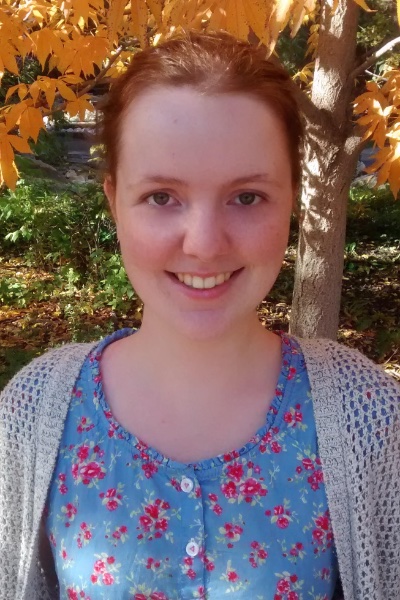4 Questions: Elise LaCroix
This article is part of our series 50 Years of Disruption, in celebration of the Department of Theatre’s 50th Anniversary. In it, we’ll ask each participant four questions about themselves and their time at York.
1. Who are you?

My name is Elise LaCroix (BA Theatre 2016), and I specialized in New Play Dramaturgy, Devised Theatre, and Directing in my time at York. I am currently a dramaturg and theatre academic, and have just recently completed an MA in Drama at the University of Alberta investigating intercultural new play dramaturgy relationships. Living in Edmonton, I am now furthering my practical dramaturgy skills as a Literary Intern with Workshop West Playwrights’ Theatre. As well as this, I am continuing to freelance dramaturg individual projects both in Edmonton and Toronto, have recently started a position in patron services at the Citadel Theatre, and am working as the Editorial Assistant on Professor Judith Rudakoff’s upcoming book Performing #MeToo: How Not to Look Away.
As a theatre artist I am deeply passionate about the development of new Canadian stories and voices. As a theatre academic, I am obsessed with trying to understand the complexities of the collaborative relationships within which work is created. Through all of my work I am focused on identity and positionality within the creative process. Everyone speaks from somewhere. Everyone is uniquely affected by the presence of others, by the specific moment in time, by the room they are in, and by the language being spoken, in any creative process. How does all of this affect the artistic work that is eventually produced? How might understanding this better help us create more inclusive spaces for emerging creators?
2. What was your favourite moment during your time in the Theatre Department, and why?
My favourite moment during my time at York was the opening night of the 24th playGround Festival in 2016. I had the privilege that year of serving as Co-Artistic Director with the fabulous Megan Apa. It was an incredible moment sitting in the audience watching all the work that had been developed through a process that I had had the honour of facilitating. To see the growth of the work, the development of the artists onstage, and the artistry of the various creative teams was amazing. The opportunity to be able to work to create the best possible environment for the specific artists in that year’s festival, and to foster a creative community on that scale, solidified for me that what I want to do in theatre is to facilitate and make space for other creators.
3. What comment, quotation, statement, or action that a professor—or classmate—offered had the greatest impact on you?
Two professors at York told me something very similar, both of which have stayed with me and impacted how I think about myself in theatre and academia. In second year devised theatre I was speaking with my professor Magda Kazubowksi-Houston, essentially apologizing for my quiet and reserved nature in class, and promising that I would work harder to participate for the rest of the year. Magda asked me how productive I thought a group of collaborators would be if everyone was trying to take up all the air in the room. Obviously not very, I replied. She reassured me that the work I was doing, the quiet observation, the contemplative critical thinking, was just as important as the work of my louder peers.
My professor Judith Rudakoff, who I took the series of dramaturgy courses with, was equally as accepting of my reserved way of being in class. She accepted that my way of learning was to observe, and never doubted that I was engaged just because I was not participating loudly.
These two professors empowered me to find my own place in theatre, the place where I could be my very best self, instead of trying to push to be someone who I am not. Being given permission to be quiet I was able to hone my skills as an observer and listener, and find my passion for asking deep questions, which ultimately led me to pursue graduate studies after my time at York.
4. Is there a way you incorporate a particular aspect of your theatre training in your current work?
I absolutely incorporate my theatre training into my current work. Above all, one of the essential lessons that I have come away with from York is how to effectively communicate and collaborate with others in various situations. Arriving to the first day of devised theatre in second year, I could not even begin to imagine how challenging learning to work together as a class would prove to be. It was an incredibly steep learning curve. Every moment from then, through building dramaturgy relationships with my peers, to collaborating with my co-assistant directors in fourth year, was about learning to navigate productive collaboration. By no means do I think I have mastered this skill even now. However, the skills I did acquire were essential to my success navigating academic relationships in grad school, and continue to help my work as I develop new dramaturgy relationships, and work as part of the team at the Citadel Theatre.
